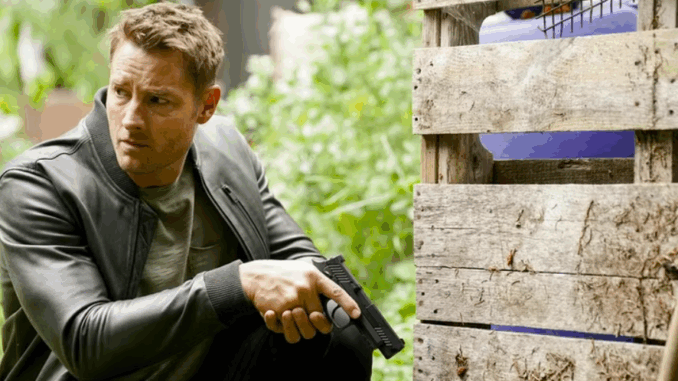
Part of what makes Tracker so addictive is its uncanny ability to blend high-octane adventure with the kind of realism that keeps viewers wondering if the stories could actually happen. Each week, Colter Shaw (Justin Hartley) embarks on a new mission to find missing persons, recover fugitives, or solve mysteries that law enforcement can’t crack. While the series is built for entertainment, many of its nail-biting cases are rooted in real survival tactics, modern technology, and actual missing-person scenarios. Season after season, this grounded approach keeps the show fresh and heightens the stakes for both its characters and the audience.
Building a Fictional World From Real Events
The writers of Tracker draw inspiration from a wide range of true stories. Some episodes echo real-life missing person investigations, where quick action and keen observation mean the difference between life and death. Others reflect survivalist lore or cutting-edge forensic methods taken from real law enforcement manuals. Though details are fictionalized for dramatic effect, the foundation of each case is carefully researched to remain believable. This dedication to authenticity allows viewers to immerse themselves in the story while sparking conversations about the very real challenges of search-and-rescue operations.
Expert Input Behind the Scenes
To ensure accuracy, the production team consults with former law enforcement officials, private investigators, and wilderness survival experts. These advisors provide insight on everything from how trackers read terrain to how digital forensics can uncover a fugitive’s trail. According to crew interviews, scripts often undergo multiple rounds of fact-checking to balance excitement with credibility. For example, episodes involving remote mountain searches incorporate genuine techniques for navigation, signal triangulation, and improvised medical care.
Technology Meets Instinct
One of the show’s most compelling aspects is the interplay between modern technology and old-school tracking. Colter Shaw uses satellite imagery, cell tower pings, and forensic software to narrow his search—but he also relies on instinctive skills like reading animal tracks or detecting subtle changes in the environment. This combination mirrors real-world search-and-rescue operations, where digital tools can accelerate a search but human intuition often provides the decisive breakthrough.
Survival Psychology at the Core
![]()
Beyond the mechanics of tracking, Tracker explores the psychological toll on both the lost and the people searching for them. Episodes often depict the panic, disorientation, and split-second decision-making that occur in life-threatening situations. The writers collaborate with psychologists and first responders to portray these emotions accurately, lending emotional weight to each rescue. Viewers are not just watching a mystery unfold—they’re experiencing the mental and physical battles that real survivors endure.
Why It Resonates With Viewers
Audiences respond to Tracker because it offers more than thrilling action; it taps into a universal fear of getting lost and the hope of being found. By grounding its plots in reality, the series creates suspense that feels personal and immediate. Each episode invites viewers to imagine what they would do in a similar crisis, transforming entertainment into an exercise in empathy and preparedness.
Season 4 and Future Storylines
As production ramps up for Season 4, insiders hint at episodes inspired by headline-making disappearances and new advances in tracking technology. Expect cases that test the limits of both human endurance and digital surveillance, as Colter faces environments—from dense wilderness to sprawling urban landscapes—that demand every skill in his arsenal.
Tracker thrives on the delicate balance between fiction and reality. By weaving authentic survival techniques and investigative methods into its storytelling, the series delivers more than weekly thrills—it offers a window into the extraordinary challenges faced by real trackers and the people they fight to bring home.
